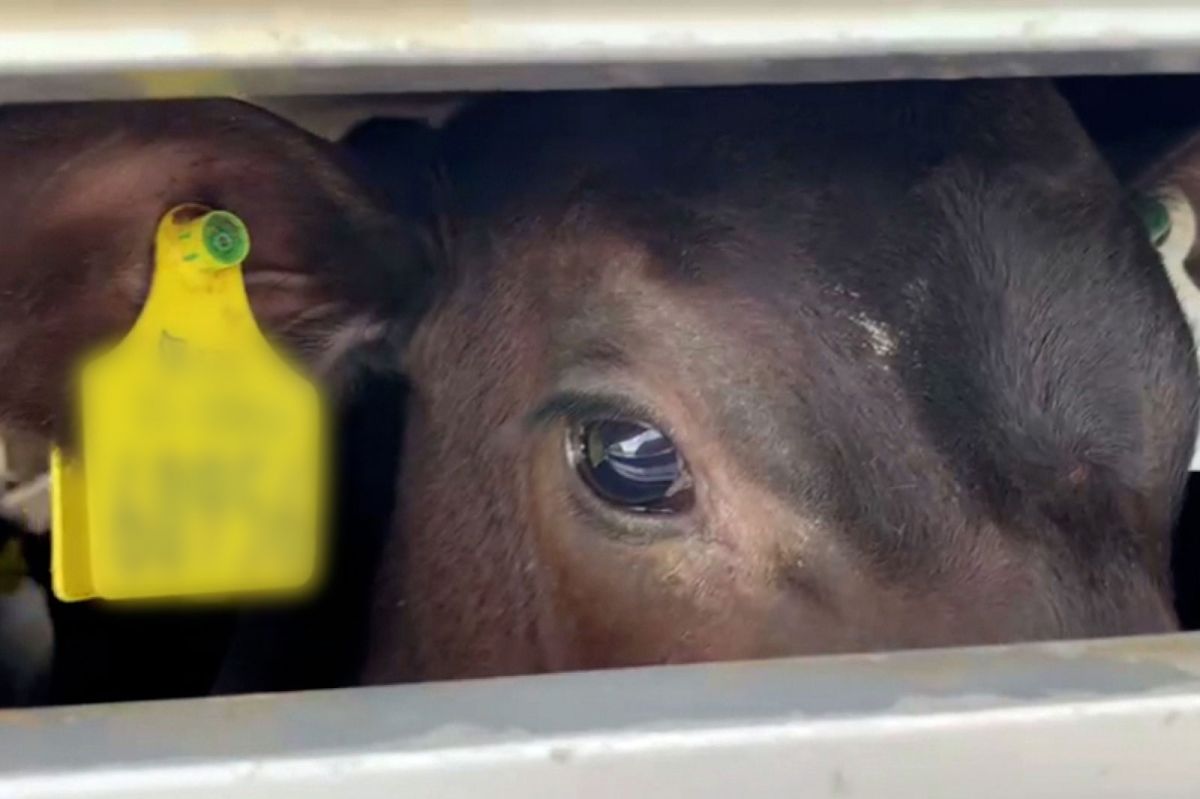DAFM to investigate bull-calf cruelty

Irish dairy calf being transported on a truck. Photo: RTÉ Investigates.
The agriculture sector is reeling today (Tuesday, July 11) following a one-hour RTÉ Investigates programme (Monday, July 10) during which undercover footage captured mistreatment of bull calves at several marts. The calves were kicked, slapped and dragged by ears and tails; and in some instances, they were also captured being thrown around, which is regarded as a serious breach of animal welfare. The use of sticks was also captured by several individuals, which is prohibited under EU law. Marts at Gortatlea, Kanturk, Bandon, Castleisland and Cahir were featured in the piece.
The documentary by RTÉ journalist, Fran McNulty, filmed over five months, also revealed grim conditions endured by bull calves that are live exported from Ireland to other parts of Europe.
According to RTÉ Investigates some 200,000 bull calves are exported from Ireland every year to be fattened on veal farms in mainland Europe. The RTÉ Investigates team visited farms in Spain, Holland and Poland, where several dead calves with Irish tags were found. The export of calves to the continent is a €170 million industry which see some ferries out of Irish ports carrying up to 3,000 calves in one sailing, according to RTÉ Investigates.
The programme documented one haulier who transported calves from Co. Wicklow to a veal farm in Spain. Part of this journey saw the animals travelling for 18.5 hours with just short breaks, as the driver required. They did not appear to receive water or any assistance for the duration.
‘The actions of a few’
Minister for Agriculture, Food and the Marine, Charlie McConologue said he ‘strongly condemns the shocking practices’ that were aired on RTÉ Investigates. “They were certainly not reflective of the work that farmers put into managing their farm enterprises responsibly. Farmers care for their animals and would never want to see them mistreated,” he said.
“The footage shown by RTÉ represents the actions of a few. What we saw was utterly unacceptable, and in some instances, was unlawful. My department has requested RTÉ provide it with all of the footage available, and any other information it has, so that it can investigate the matter fully and take appropriate action.”
RTÉ statement
A statement from RTÉ Investigates in advance of the documentary airing stated: “A big push on milk production means that one and a half million dairy calves are born in Ireland every year. Around half a million of the calves born are male, many of lower grade quality aren’t suitable to be reared for beef, so they are virtually valueless and end up being slaughtered on farm, in meat factories or being exported as veal to mainland Europe.”
The statement confirmed that RTÉ Investigates filmed at several Irish marts and saw some handlers treat young calves capably and with respect. But others, including mart workers, farmers and transporters, showed a blatant disregard for animal welfare.
The programme showed how some calves could not be given away for free at marts, reflecting their level of valuelessness; it found that there had been a recent ‘sharp increase in baby calves being delivered for slaughter to meat-processing plants’; and it revealed that a euthanasia service may have been offered by a knackery.
Dáil debate
Calls have been made for the Dáil to debate the mistreatment of bull calves and alleged live-animal transport breaches this Thursday (July 13). Deputy Paul Murphy has written to the Ceann Comhairle stating that he does not think that the Dáil should rise ‘before it takes time to discuss this scandal and hear from the minister about the nature of the investigation to be undertaken’.
Consequences
Sinn Féin spokesperson for agriculture, Claire Kerrane said there must be consequences for those engaged in the vile scenes of abuse of calves. “We now need to see a thorough investigation into what has been shown. We need to see a review of the practices and laws around live exports and if we want to continue with such exports, that has to be on the basis of strict adherence to the laws in place, these laws need to be enforced and where there are breaches, there needs to be consequences.
"I also noted one mart, in response to the cruelty displayed on footage aired, suggested animal welfare training for staff. Anyone working in a mart who engages in throwing calves or physically abusing them shouldn't work in such an environment, far from training, these individuals need to be identified and sacked,” she said.





